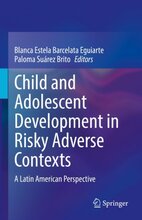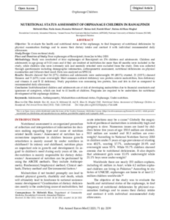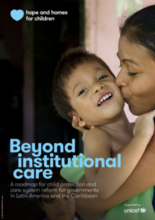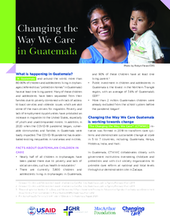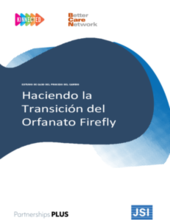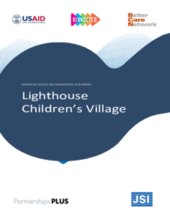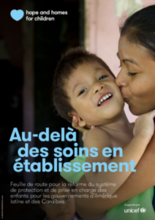Displaying 81 - 90 of 678
The causes of institutionalization are multiple and the impact it causes is reflected in different areas such as the development of the child in general, such as mental, psychic structuring, health, and nutrition. Psychologically, children present alterations in their cognitive, emotional, sexual, and social domains with a high probability of developing several pathological conditions. This chapter presents an overview of this phenomenon based on several research investigations carried out in Spain, Latin America, and Mexico.
The objective of the study was to evaluate the health and nutritional status of four registered orphanages of Rawalpindi, to find frequency of nutritional deficiencies by physical examination findings and to assess their dietary intake and contrast it with individual recommended daily allowances.
This video case study was developed as a part of the Transitioning Models of Care Assessment Tool training package. It is 1 of 8 video case studies exploring different aspects of learning on transitioning residential care services. To access the full set of case studies or the training package, visit the BCN Transition Hub.
These video case studies were developed as a part of the Transitioning Models of Care As
This report provides a framework for governments to develop their own roadmap for child protection and care system reform and deinstitutionalisation. The authors hope that it will inspire a conversation, guide inter-ministerial and cross society dialogue, support multidisciplinary groups at all levels to frame their own assessment, and plan their own roadmap for change.
This two-pager highlights 2018-2020 results of the The Changing the Way We Care℠ (CTWWC) initiative for decision makers, government officials, media, other institutions or organizations working with children and adolescents, and private and public counterparts. CTWWC was formed in 2018 to transform care systems and demonstrate sustainable change at scale in 5 to 7 countries, including Guatemala, Kenya, Moldova, India, and Haiti. In Guatemala and around the world, more than 80-90% of children and adolescents living in orphanages (referred to as “protection homes” in Guatemala) have at least one living parent.
Este estudio de caso destaca algunas de las dinámicas clave que surgieron a lo largo del proceso de transición de sus servicios de la atención residencial a la programación no institucional de una organización y examina cómo esas dinámicas influyeron en la transición y determinaron el tipo de apoyo brindado, así como el más apropiado. estrategia de transición. El estudio de caso se organiza en torno a las distintas etapas de la transición y explora algunos de los temas clave descritos en la Herramienta de evaluación de modelos de atención en transición.
Más Allá del Cuidado Institucional proporciona un marco para que los gobiernos desarrollen su propia hoja de ruta para la reforma de sus sistemas de protección y cuidado infantil y la desinstitucionalización. Esperamos que esto inspire el diálogo, guíe las conversaciones entre grupos interministeriales y en la sociedad, oriente a grupos
multidisciplinarios de todos los niveles en la creación de su propia evaluación y ayude en la planificación de su propia hoja de ruta para el cambio.
La Aldea Infantil Lighthouse se estableció en 2004 como una institución de atención residencial de gestión privada y financiada con fondos privados. En 2014, su donante principal desde hace mucho tiempo tomó la decisión de eliminar gradualmente la atención institucional de apoyo financiero. Este estudio de caso destaca algunas de las señales de advertencia tempranas y el posterior descubrimiento de comportamientos no éticos y delictivos que a veces se pueden observar en un proceso de transición.
Au-delà des soins institutionnels fournit un cadre aux gouvernements pour développer leur propre feuille de route pour la réforme et la désinstitutionnalisation du système de protection et de garde des enfants. Nous espérons qu'il inspirera une conversation, guidera le dialogue interministériel et interprofessionnel, soutiendra les groupes multidisciplinaires à tous les niveaux pour encadrer leur propre évaluation et planifier leur propre feuille de route pour le changement.

